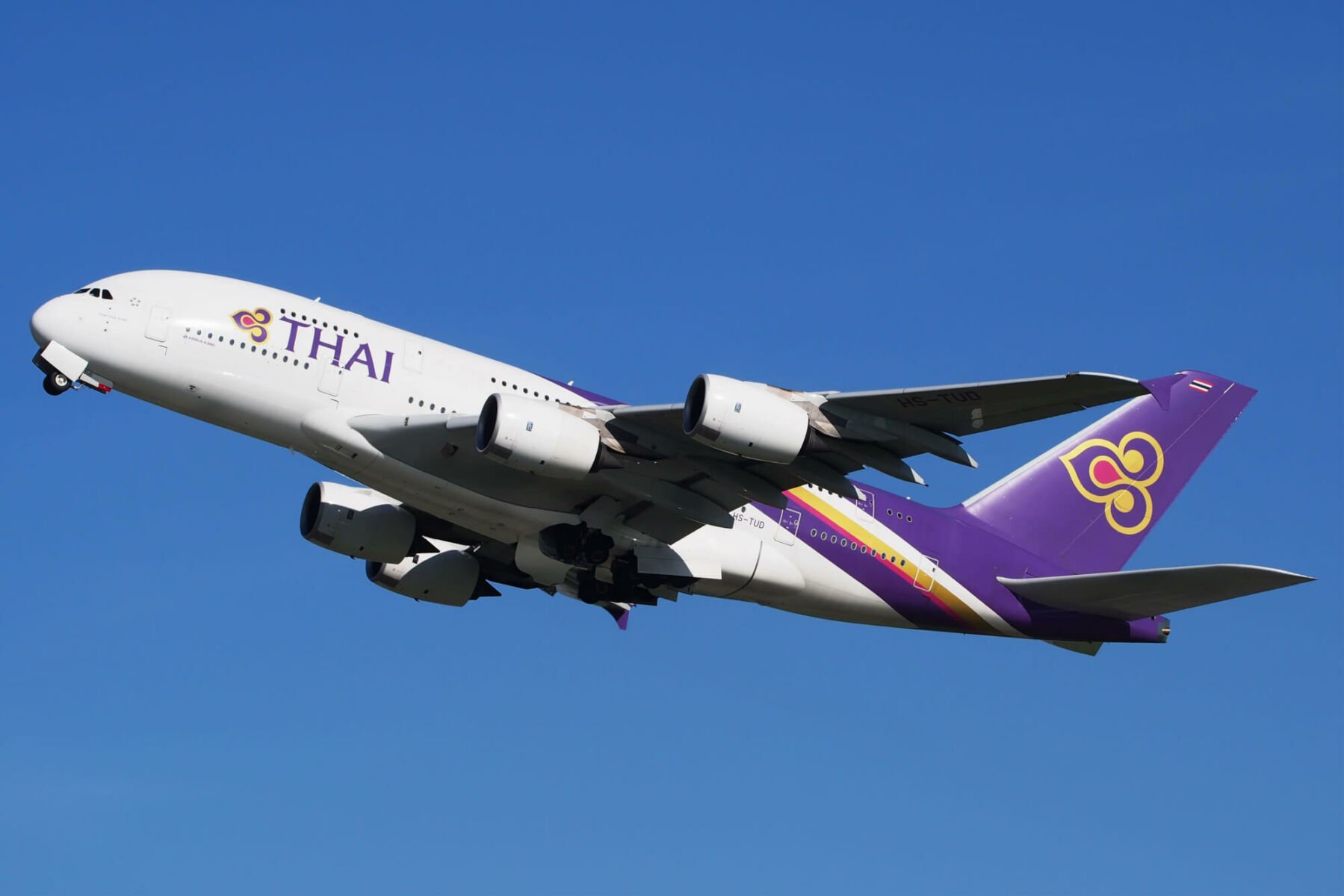Thai Airways’ Boeing and Airbus aircraft sales

Thai Airways International (THAI) successfully sold its entire fleet of 18 retired aircraft, including six Boeing 777-200s, six Boeing 777-300s, and six Airbus A380s. This major move marks a significant step in the airline’s restructuring strategy.
THAI CEO Chai Eamsiri confirmed that sales agreements for all 18 aircraft have been signed on May 12. The airline has already completed the paperwork for six of these aircraft, with the remaining 12 expected to follow soon.
While the sale has brought some financial relief, it also resulted in a non-cash impairment charge of 3.33 billion baht in THAI’s Q1 2024 financial results, heavily impacting the airline’s net profit for the quarter.
Despite this, the airline reported a 10.7% increase in total revenue for Q1 2024, reaching 45.9 billion baht compared to the same period in 2023. This growth was driven by strong passenger traffic and higher yields on routes to Europe, Australia, and Japan.
However, total expenses for the quarter also rose sharply to 34.88 billion baht, a 22.5% increase from the previous year. The rise in costs was attributed to higher production and traffic volumes, an increased number of flights and destinations, and a surge in passenger numbers.
Additionally, the depreciation of the baht and higher ground handling fees and raw material prices contributed to the higher expenses. Specifically, losses from foreign exchange rate fluctuations amounted to 5 billion baht, and impairments of aircraft and aviation equipment totalled over 3 billion baht.
These factors led to a net profit of only 2.42 billion baht, an 80.7% decrease from the same period last year, reported KhaoSod English.
As of 31 March, THAI’s active fleet stands at 73 aircraft, up from 70 at the end of 2023. This expansion has allowed the airline to increase frequencies on high-demand routes, which is expected to drive further revenue growth in the upcoming quarters.
In related news, THAI revealed the anticipated completion of its ongoing restructuring saga, set to wrap up later this year, marking a remarkable turnaround since the tumultuous onset of the Covid-19 crisis in 2020.
Latest Thailand News
Follow The Thaiger on Google News:


























